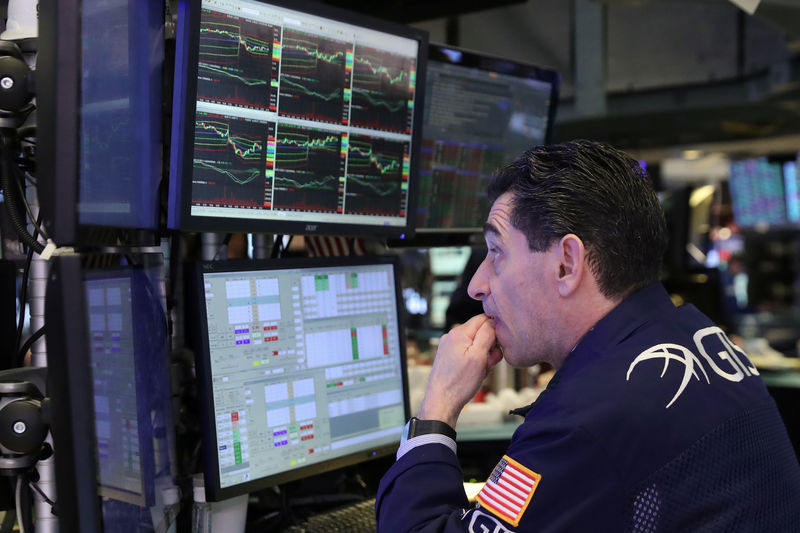 © Reuters. FILE PHOTO: A trader looks at price monitors as he works on the floor at the New York Stock Exchange (NYSE) in New York City, New York
© Reuters. FILE PHOTO: A trader looks at price monitors as he works on the floor at the New York Stock Exchange (NYSE) in New York City, New YorkBy Trevor Hunnicutt
NEW YORK (Reuters) – Investors demanded cash back from U.S.-based funds for a 13th straight week, showing increased concern over economic growth as stock and bond returns disappointed, Investment Company Institute (ICI) data showed on Wednesday.
People withdrew $30.4 billion from U.S.-based mutual funds and exchange-traded funds (ETFs) on a net basis during the week ended Jan. 2, including $14.2 billion from bonds and $11.3 billion from stocks, the trade group said.
Investors have been preparing in recent weeks for the Federal Reserve to further tighten monetary policy as the United States and China spar over trade, making a recession more likely.
During the week studied by ICI, Apple Inc (O:) warned that iPhone sales in the holiday quarter were weak due to slower sales in China, a bad omen for the coming earnings season. The widely owned company’s shares fell nearly 10 percent the following day.
Some investors view elevated withdrawals as a contrarian signal that now is the time to buy.
In the days since the withdrawals, stocks have staged a rebound after Fed chair Jerome Powell said on Friday that policymakers “will be patient” as they watch how the U.S. economy performs. Those remarks and others by Fed officials signaled that further rate hikes are on hold for now.
While recent withdrawals are less than a percent of these funds’ overall assets, investment products focused on equities likely posted record monthly outflows in December, according to earlier estimates from Lipper, a research service. More cash was pulled from bond funds over the latest seven days than at any point in nine weeks, ICI data showed.
Bond funds would normally attract interest when people flee the stock market. But tight monetary policy, ballooning U.S. budget deficits and record levels of U.S. corporate debt are raising the specter of losses in debt markets, too.
The high-yield “junk” bond market, which has been a leading indicator of recessions, is flashing “yellow” now, Jeffrey Gundlach, chief executive of Doubleline Capital LP, said on a Tuesday webcast.
Gundlach described U.S. government debt as “a completely horrific situation,” saying the United States could be at a “tipping point.”
The U.S. government spent more than it made from taxes to stimulate the economy following the 2007-09 global financial crisis. More recently, Washington cut individual and corporate taxes, adding to the country’s debt.
“Are we growing at all or is it all just the increase in debt?” Gundlach asked.
Fusion Media or anyone involved with Fusion Media will not accept any liability for loss or damage as a result of reliance on the information including data, quotes, charts and buy/sell signals contained within this website. Please be fully informed regarding the risks and costs associated with trading the financial markets, it is one of the riskiest investment forms possible.
Source: Investing.com





























